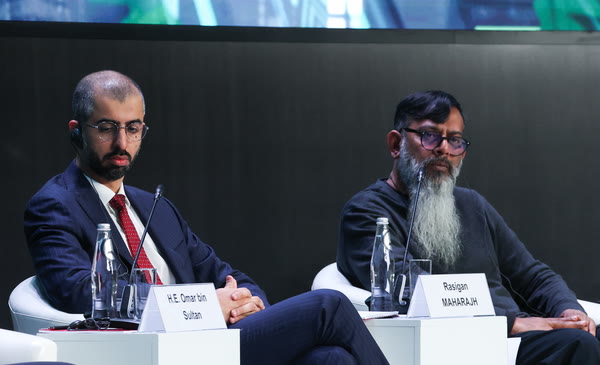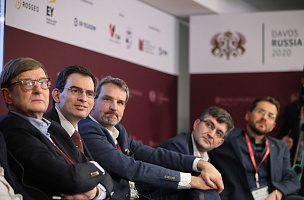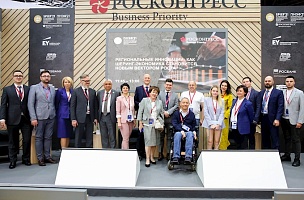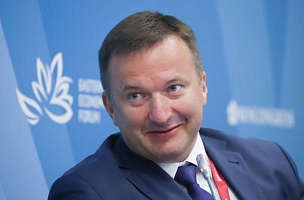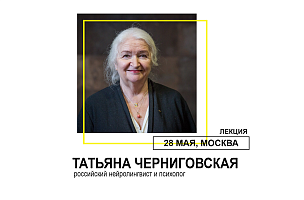KEY CONCLUSIONS
Working to identify and support talent will ensure future economic growth
“Talent is a multifaceted concept. It is not just a technical thing, not just a purely "knowledge" thing. Talent lies in so many areas. And these talents will really determine our transition to a new society,”
Andrey Fursenko, Aide to the President of the Russian Federation.
“We were ruminating that we should think about a forward-looking history. We should bet on working with talent in addition to working with profession and competence. Especially since it is clear that the ideology of "one profession for life" is already a thing of the past. <...> Of course, when working with talent, we understand that there is a high degree of uncertainty, we are working with the future. That is why it is very important for us as a business to check ourselves every now and again to evaluate the investments we make in people's development,” Ilya Dementyev, Rector, Gazprom Neft Corporate University.
“We can recall many talented people from our history, but how many people have never found their fulfillment? And in this sense, the creation of a state system to identify, support, and promote talent is something that has been done in Russia in recent years: it is the Sirius system. I think it represents a qualitative shift. We have never had such a system in our history. We have always had talent that made its own way up. <...> It seems to me that today we, as the country and as people, are creating conditions for a new quality of economy through specially identified and advanced talents,” Konstantin Mogilevsky, Chairman of the Bord, Russian Historical Association.
PROBLEMS
Lack of motivation to learn and talent drain
“Changing the public opinion from "go take it all " to "you have to work hard and long to take it all” would be a global shift. This is really serious. And we see in our practical work how extremely gifted children unfortunately lose their drive by the end of school, precisely because they do not have this charge, this desire to work hard, regularly and fruitfully. This is a big, serious problem,” Maxim Pratusevich, Director, Presidential Physics and Mathematics Lyceum No. 239.
“The university is like a condensate of talent in a way that it collects it, but it cannot hold it if there is no environment around it. Talent comes in for a certain amount of time and has to enter the talent economy. And this can be done on several occasions. After all, talent wants to live, it manifests itself in life. <...> It wants either productive activities or discoveries. And discoveries are science. That is, the university must show the big road to science, long-term, perhaps,” Inna Shevchenko, Rector, Southern Federal University (SFedU).
“In Iran after the revolution there was a focus on developing scientific education, so that a large number of people would have access to education. So that people all over the country, people from different social classes could get an education... But then it became clear that a large number of talented students went abroad after completing their education. And the more sanctions were imposed on Iran, the more important it was to develop their talents. <...> It seemed that talents could only show themselves if they left the country, went somewhere else,” Seyed Mohammad Marandi, Vice-Rector for International Affairs, Professor of the Faculty of Foreign Languages and Literature, Tehran State University.
SOLUTIONS
Building joint work of business and various educational structures
“We realized that working only internally, even with large investments, is not nearly as effective compared to taking our traditional business approach. It means we do the same thing that we do in our core business: we work with our partners. In that sense, at virtually every level – higher education, secondary education... and even in elementary school – we try to find reliable and effective partners. And in this sense, we have moved from the traditional "customer-contractor" ideology, when business would order well-trained graduates from educational institutions, to the "partner-partner" ideology,” Ilya Dementyev, Rector, Gazprom Neft Corporate University.
“If the talent manifests in practical activities, then the university must ensure collaboration with strategic partners so that ... the talent flows into productive activities and creates solutions,” Inna Shevchenko, Rector, Southern Federal University (SFedU).
“Let me emphasize our cooperation with higher education institutions in Russia. We work in different aspects of science. And this is very important. We choose where we want to go, we look at what will support us along the way, and we put more effort there,” Rasigan Maharajh, Chief Director, Institute for Economic Research on Innovation (IERI), Tshwane University of Technology.
“In our institutes where we do research and development, there are so-called ‘basic departments’ of our supporting universities. There graduate students can get acquainted with experimental capacities, understand what kind of R&D is conducted in the institutes, what the institute is all about. <...> We have a number of programmes, so-called internships. We even call them Rosatom Growth Labs. We take graduate students, invite them to our institutes, invite them to our facilities,” Pavel Zaytsev, Chief Executive Officer, Science and Innovations.
Raising the prestige of science
“We try to make science heroic, because they come for the name, they come for the cool lab, for the cool and maybe unfulfilled dream. And in that sense, we see such an influx, because we have a higher number of applicants from other regions for graduate programmes in science or engineering. We ask: Why did you come? They say: We read an article about a particular professor, he solves cool problems, we are interested, we want to try solving them too,” Inna Shevchenko, Rector, Southern Federal University (SFedU).
“How do we restore confidence in science, faith in science? The first option is stipends. Because social participation in the reforming the science must be very strong. And the industry is not separated from science, it must also participate in this process. And you should not be naïve. Now there is a battle between ideas, a competition, but this does not mean that we do not have a chance to be successful,” Rasigan Maharajh, Chief Director, Institute for Economic Research on Innovation (IERI), Tshwane University of Technology.
For more information, visit the Roscongress Foundation’s Information and Analytical System roscongress.org.


